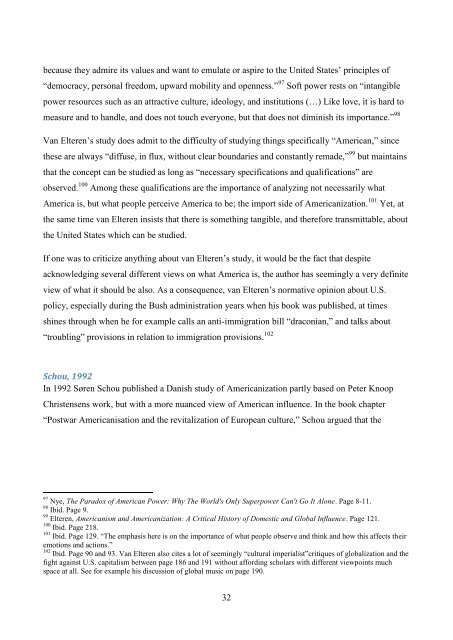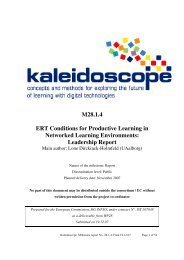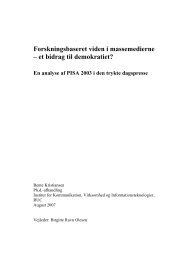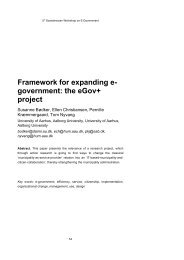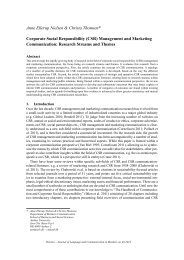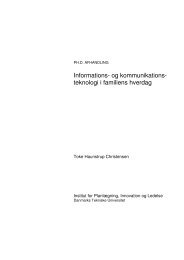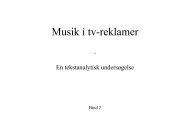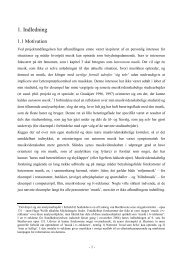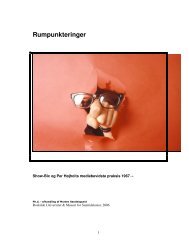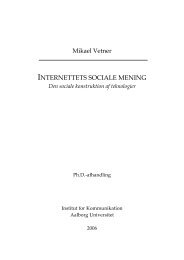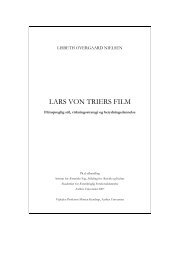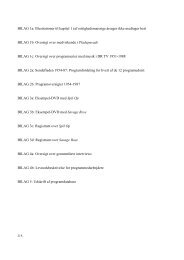The Jeremiad Over Journalism
The Jeremiad Over Journalism
The Jeremiad Over Journalism
Create successful ePaper yourself
Turn your PDF publications into a flip-book with our unique Google optimized e-Paper software.
ecause they admire its values and want to emulate or aspire to the United States‘ principles of<br />
―democracy, personal freedom, upward mobility and openness.‖ 97 Soft power rests on ―intangible<br />
power resources such as an attractive culture, ideology, and institutions (…) Like love, it is hard to<br />
measure and to handle, and does not touch everyone, but that does not diminish its importance.‖ 98<br />
Van Elteren‘s study does admit to the difficulty of studying things specifically ―American,‖ since<br />
these are always ―diffuse, in flux, without clear boundaries and constantly remade,‖ 99 but maintains<br />
that the concept can be studied as long as ―necessary specifications and qualifications‖ are<br />
observed. 100 Among these qualifications are the importance of analyzing not necessarily what<br />
America is, but what people perceive America to be; the import side of Americanization. 101 Yet, at<br />
the same time van Elteren insists that there is something tangible, and therefore transmittable, about<br />
the United States which can be studied.<br />
If one was to criticize anything about van Elteren‘s study, it would be the fact that despite<br />
acknowledging several different views on what America is, the author has seemingly a very definite<br />
view of what it should be also. As a consequence, van Elteren‘s normative opinion about U.S.<br />
policy, especially during the Bush administration years when his book was published, at times<br />
shines through when he for example calls an anti-immigration bill ―draconian,‖ and talks about<br />
―troubling‖ provisions in relation to immigration provisions. 102<br />
Schou, 1992<br />
In 1992 Søren Schou published a Danish study of Americanization partly based on Peter Knoop<br />
Christensens work, but with a more nuanced view of American influence. In the book chapter<br />
―Postwar Americanisation and the revitalization of European culture,‖ Schou argued that the<br />
97<br />
Nye, <strong>The</strong> Paradox of American Power: Why <strong>The</strong> World's Only Superpower Can't Go It Alone. Page 8-11.<br />
98<br />
Ibid. Page 9.<br />
99<br />
Elteren, Americanism and Americanization: A Critical History of Domestic and Global Influence. Page 121.<br />
100<br />
Ibid. Page 218.<br />
101<br />
Ibid. Page 129. ―<strong>The</strong> emphasis here is on the importance of what people observe and think and how this affects their<br />
emotions and actions.‖<br />
102<br />
Ibid. Page 90 and 93. Van Elteren also cites a lot of seemingly ―cultural imperialist‖critiques of globalization and the<br />
fight against U.S. capitalism between page 186 and 191 without affording scholars with different viewpoints much<br />
space at all. See for example his discussion of global music on page 190.<br />
32


